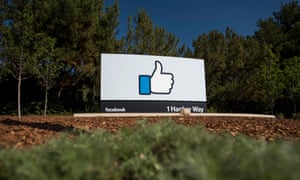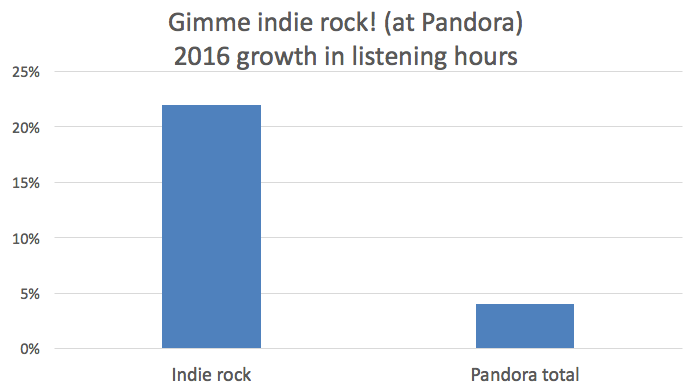World Health Organization says gaming addiction is a disease
The World Health Organization (WHO) recently released the latest draft of its International Compendium of Diseases. Two of the most eye-catching additions to this update, the first in several years, are “hazardous gaming,” and “gaming disorder.” This would effectively put a gaming addiction on the same level as that of a substance addiction.
Source: World Health Organization says gaming addiction is a disease
Apple’s HomePod is a misplaced bet in race with Amazon Echo and Google Home
Apple’s delayed HomePod voice-activated speaker is a single product with a relatively high price of $350, or seven times the starting cost of similar devices from Amazon.com and Google parent company Alphabet. It feels like a missed strategic opportunity.
Source: Apple’s HomePod is a misplaced bet in race with Amazon Echo and Google Home | The Seattle Times
There is a 40% chance Apple will acquire Netflix, according to Citi
“The firm has too much cash – nearly $250 billion – growing at $50 billion a year. This is a good problem to have.”
Source: Apple’s potential M&A candidates – $AAPL – Business Insider
How To Use Google Lens To Identify Objects On Your Pixel Phone
Google Lens has been integrated into Google Assistant on Pixel smartphones. It recognizes objects and landmarks, and here’s how to use it.
Source: How To Use Google Lens To Identify Objects On Your Pixel Phone | Digital Trends
The Most Important Skill In The Age Of Artificial Intelligence (AI)
Have you wondered what is AI exactly? What can it do and what can it not do? Learn about AI and the one thing it lacks.
Source: The Most Important Skill In The Age Of Artificial Intelligence (AI)
3 streaming TV trends to watch in 2018
The rise of online skinny bundles and the exodus of traditional pay TV customers in 2017 mean 2018 will be another formative year for Internet TV.
Source: 3 streaming TV trends to watch in 2018 – The San Diego Union-Tribune
Expect More AI, AR and Security Features in 2018’s Smartphones
Next year’s phones will likely gain more augmented reality and artificial intelligence features, while flexible screens may not quite catch on, say analysts.
Source: Expect More AI, AR and Security Features in 2018’s Smartphones
The year in Snapchat advertising
In 2017, Snapchat introduced several new ad formats, a self-serve platform and an AR focus.
The surprising thing Google learned about its employees — and what it means for today’s students
The top traits of success at Google sound more like what one gains as an English or theater major than as a programmer.
Business Schools Now Teaching #MeToo, N.F.L. Protests and Trump
With sexual harassment rocking the business world and C.E.O.s speaking out, business schools are ripping new case studies straight from the headlines.
Source: Business Schools Now Teaching #MeToo, N.F.L. Protests and Trump – The New York Times
Smartwatch usage continues to decline
The entire category is being overtaken by smart speakers, likely because of the cost.
Source: Smartwatch usage continues to decline, eMarketer says – Business Insider
Creative Trends in Stock Media for 2018
We analyzed search and download data to uncover the fastest-growing trends in the stock media landscape to help you make creative decisions this year.
Source: Creative Trends in Stock Media for 2018 – Storyblocks
Science Says Fitness Trackers Don’t Work. Wear One Anyway
Activity monitors are getting more addictive—and more motivational.
Source: Science Says Fitness Trackers Don’t Work. Wear One Anyway | WIRED
AR Experiments
Explorations in augmented reality using ARCore, Android, and more.
Source: AR Experiments
The face of the machine: The emotional toll of working in social media
Harassment, trauma, hair loss: meet the people who work as social media managers and suffer for brands
Source: The face of the machine: The emotional toll of working in social media – Salon.com
Nielsen’s New Ratings Measurement of Netflix Shows May Upend the TV Industry
Here’s why Nielsen’s plan to track Netflix viewership is actually a big deal.
Source: Netflix: Nielsen’s Streaming TV Ratings Measurement Will Change All | Observer
The end of oversharing
So we stand on a precipice waiting to drop. What media social media gives rise to in the next decade is anyone’s guess – rich people are betting on VR but that’s still a tough sell. We are in an interstitial period, like the point in the late 1980s when you could still compare the nascent Internet to CB radio. We don’t have maps to future territories. Will we collectively give up, splayed naked on the screen for all to market to? Will we turn inward using apps like Signal and Telegram to ensure no one can see us? Will we turn social media into more of a money-making channel for folks with six-packs and mischievous grins? Or can we expect something else entirely?
The Number That Explains Snap’s New Strategy
New user data reveals how–and where–people snap.
Source: Exclusive: The Number That Explains Snap’s New Strategy | Co.Design
Nearly half of U.S. teens prefer Snapchat over other social media
This fall’s survey found that 47 percent of surveyed teens say Snapchat is their preferred social media, up from 39 percent in the spring. Way back in the spring of 2015, Snapchat was their least preferred social media platform. And Instagram hasn’t been the most popular platform since 2015, according to the survey data.
Recently Snapchat has seen increased pressure from Instagram, which, along with parent Facebook, has been copying Snapchat’s features. The move has been paying off as Instagram has eaten away at Snapchat’s share of new users in the U.S., according to data from Adobe.
Snapchat, however, is still tops for teens:
Source: Nearly half of U.S. teens prefer Snapchat over other social media – Recode
What Does Facebook Consider Hate Speech? Take Our Quiz
The company’s rules help to show how it distinguishes between free speech and hate speech. Judge for yourself.
Source: What Does Facebook Consider Hate Speech? Take Our Quiz – The New York Times
Power Up: How Brands are Getting their Game on in Esports
What do energy drinks, luxury automobiles and razors have in common? They’re all products prominently featured in esports tournaments, and they’re among the first non-endemic brand categories to get involved in competitive video gaming sponsorship.
Source: Power Up: How Brands are Getting their Game on in Esports
‘Our minds can be hijacked’: the tech insiders who fear a smartphone dystopia
The Google, Apple and Facebook workers who helped make technology so addictive are disconnecting themselves from the internet. Paul Lewis reports on the Silicon Valley refuseniks who worry the race for human attention has created a world of perpetual distraction that could ultimately end in disaster
How Streaming Is Changing the Sound of Pop
Hit-making songwriters and producers reveal the ways they are tailoring tracks to fit a musical landscape dominated by streaming.
Source: Uncovering How Streaming Is Changing the Sound of Pop | Pitchfork
What Happened When I Wore Google And Levi’s “Smart” Jacket For A Night
I took the first mass-produced garment with a textile interface for a spin, and found myself both impressed and frustrated.
Screen Time Dollar Signs
While much focus will be on the shows themselves as the new TV season starts, we took a look at insights surrounding the advertising inventory—from how much money is spent on advertising over platforms to the commercial ratings lifts of ads beyond seven days to how marketers are leveraging branded integrations.
Source: Screen Time Dollar Signs
Amazon admits video isn’t carrying its own weight
Amazon.com CEO Jeff Bezos is ordering a strategic revamp at Amazon Studios, its original video division.
Source: Amazon admits video isn’t carrying its own weight – Business Insider
Apple is opening up amid privacy questions about Face ID, personal data collection
Apple released more details about the iPhone X’s Face ID feature when it published a new privacy site Wednesday, addressing some of the concerns that people have had since the face-scanning feature was announced.
The Growing Reach of Radio Among U.S. Ethnic Audiences
In aggregate, the Hispanic and black radio audience totals 74.7 million people 12 and older, up 6.25% from 70.3 million just five years ago.
Source: The Growing Reach of Radio Among U.S. Ethnic Audiences
Coming Soon to AMC Theaters: Virtual Reality Experiences
The theater chain has invested $20 million in the start-up Dreamscape Immersive and will open six locations offering V.R. experiences in the next 18 months.
Source: Coming Soon to AMC Theaters: Virtual Reality Experiences – The New York Times
What Social Trends Are Marketers Paying Attention To?
A study of US advertising and marketing executives found there are several social media trends that will influence their efforts next year, ranging from video to virtual and augmented reality.
Source: What Social Trends Are Marketers Paying Attention To? – eMarketer
How Apple Built An iPhone Camera That Makes Everyone A Professional Photographer
How does Apple think about iPhone camera design? Obsessively.
Source: How Apple Built An iPhone Camera That Makes Everyone A Professional Photographer
The latest iPhones show why A.I. is the new electricity
New technologies abound in the iPhone 8 and iPhone X, but one of them is not like the others.
Source: The latest iPhones show why A.I. is the new electricity | Computerworld
Facebook’s Ad Scandal Isn’t a ‘Fail,’ It’s a Feature
The fact that “Jew haters” can be targeted isn’t surprising if you understand how the business model works.
Source: Facebook’s Ad Scandal Isn’t a ‘Fail,’ It’s a Feature – The New York Times
One chart shows the rise in revenue from music streaming
After nearly two decades of declining sales, the music industry’s revenues are rebounding, thanks to streaming services.
Source: One chart shows the rise in revenue from music streaming: CHARTS – Business Insider
Instagram on track to top Snapchat’s new user sign ups
Snapchat has signed up more US users for its app than its rival Instagram has since the beginning of the year, though its leadership on this front may end soon
Source: Instagram on track to top Snapchat’s new user sign ups – Business Insider
‘Likes’ Lead to Nothing—and Other Hard-Learned Lessons of Social Media Marketing –
A decade-and-a-half after the dawn of social media marketing, brands are still learning what works and what doesn’t with consumers.
Hulu’s ‘The Handmaid’s Tale’ beat Netflix, but it needs to do more
Hulu had a right to party on Sunday night, with “The Handmaid’s Tale” raking in Emmys, but the battle with Netflix is far from over.
Source: Hulu’s ‘The Handmaid’s Tale’ beat Netflix, but it needs to do more – Business Insider
Indie Rock Is Thriving On Pandora. Does Anyone Care?
The state of indie rock? Always up for debate. The state of indie rock at Pandora? Never been better, says the music streamer’s Glenn Peoples, who took a deep dive into the data.
Inside Facebook’s plan to turn the world into the MoMA
Augmented reality art, which you can only see through special apps on your phone, is coming. And with it, questions about what’s real and what’s not.
Source: Inside Facebook’s plan to turn the world into the MoMA – CNET
Amazon and Netflix look to India for subscriber growth
Amazon and Netflix have invested in cricket-focused web series in a bid to grow their subscriber bases in India, where the sport is massively popular.
Source: Amazon and Netflix look to India for subscriber growth – Business Insider































